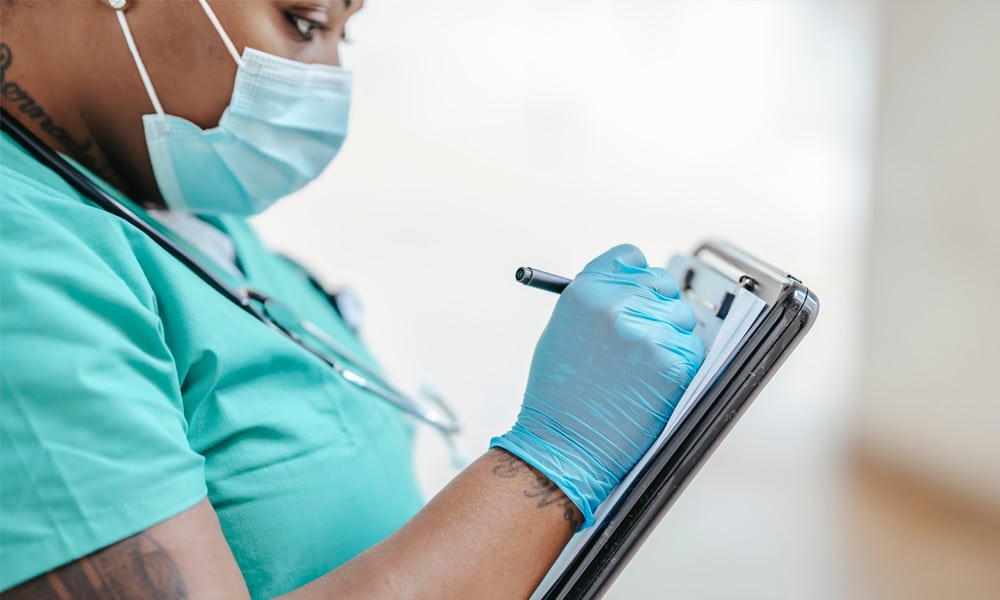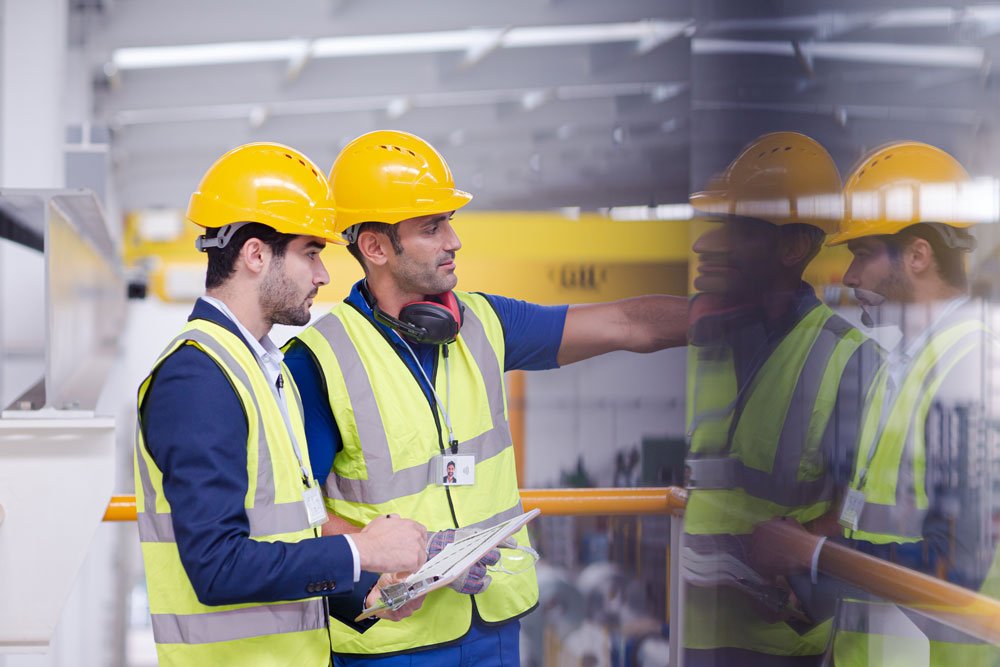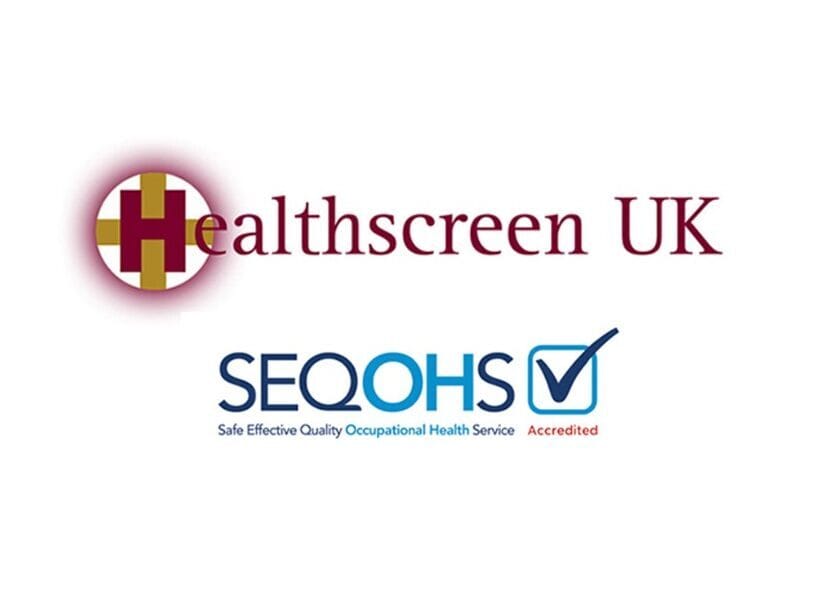Ensuring the health and safety of your workforce is a fundamental responsibility for every employer. If your employees are engaged in tasks that carry significant risks to their health or the safety of others, safety critical medicals become essential. These examinations help determine whether your staff is fit for their roles, thereby reducing the risk of workplace accidents. Furthermore, they ensure compliance with health and safety regulations.
This guide is designed to give you a comprehensive understanding of safety-critical medicals. We’ll explore their importance, the legal requirements, and practical steps for implementing them effectively in your organisation.
In This Article:
What Are Safety Critical Medicals?
1) Definition of Safety Critical Medicals
Safety-critical medicals are specialised health assessments. They are designed to evaluate whether employees are fit to perform tasks that could significantly impact their health or the safety of others. These tasks are often situated in high-risk environments such as construction sites, transport industries, and manufacturing plants. The purpose of these medicals is to ensure that employees can safely carry out their duties without posing risk to themselves or those around them.
2) Explanation of Their Purpose and Importance
The primary purpose of safety-critical medicals is to identify any medical conditions or health issues that might impair an employee’s ability to perform their job safely. They help in detecting potential problems early on, therefore allowing for timely interventions and adjustments. For instance, if an employee is found to have a condition that could be exacerbated by heavy lifting or prolonged exposure to hazardous materials, appropriate measures can be taken to mitigate these risks.
Safety-critical medicals are crucial for several reasons, including:
- Ensuring Employee and Public Safety: By assessing the health and fitness of employees, these medicals help in preventing accidents and injuries in the workplace and beyond. In this way, they not only protect the individual but also ensure a safer environment for colleagues and the public. For example, a driver with a medical condition that could impair their ability to operate a vehicle safely poses a risk to other road users.
- Compliance with Regulations: In many industries, safety-critical medicals are a legal requirement. Ensuring compliance with health and safety regulations helps employers avoid legal issues and potential fines. Additionally, it demonstrates a commitment to employee welfare and regulatory adherence.
- Enhancing Productivity: Healthy employees are more likely to be productive and efficient. By addressing health issues early, employers can minimise absenteeism and ensure that their workforce remains robust and capable of performing their duties effectively.
- Building Trust and Morale: When employees know that their health and safety are a priority, it fosters a sense of trust and morale within the organisation. Consequently, this leads to higher job satisfaction and lower turnover rates.
In essence, safety-critical medicals are a proactive approach to workplace health and safety. They are an investment in the wellbeing of employees and the overall safety and productivity of the workplace.
Legal and Regulatory Requirements
1) Overview of Relevant Legislation
In the UK, several pieces of legislation mandate the need for safety-critical medicals to ensure the health and safety of employees in high-risk jobs. These laws provide a framework for employers to create safe working environments and protect their employees from harm.
- Health and Safety at Work Act 1974: This is the primary piece of legislation covering occupational health and safety in the UK. It places a duty on employers to ensure, as far as reasonably practicable, the health, safety and welfare of their employees. This includes conducting risk assessments and implementing necessary measures to mitigate risks.
- Control of Substances Hazardous to Health (COSHH) Regulations 2002: COSHH requires employers to control substances that are hazardous to health. This includes carrying out risk assessments, providing adequate control measures, and ensuring that employees undergo health surveillance if they are exposed to certain hazardous substances. Safety-critical medicals are part of this health surveillance.
- The Management of Health and Safety at Work Regulations 1999: These regulations require employers to conduct suitable and sufficient risk assessments and implement appropriate health surveillance. They emphasise the need for ongoing monitoring of employees’ health, especially those in safety-critical roles.
- The Working Time Regulations 1998: These regulations govern the working hours of employees, including those in safety-critical roles. In this way, they ensure that employees do not work excessive hours that could impair their ability to perform their duties safely.
2) Employer Responsibilities
Employers have a legal responsibility to ensure that employees undergoing safety-critical roles are fit for their duties. This includes the following responsibilities:
- Conducting Risk Assessments: Employers must carry out comprehensive risk assessments to identify hazards associated with safety-critical tasks. This helps in determining which employees need to undergo safety-critical medicals.
- Implementing Health Surveillance: As part of their duty to protect employees, employers must provide appropriate health surveillance for those exposed to risks. This includes regular safety-critical medicals to monitor the health of employees and detect any conditions that could impair their ability to work safely.
- Ensuring Compliance with Legislation: Employers must ensure that they are fully compliant with relevant health and safety legislation. This involves keeping up to date with legal requirements, maintaining accurate records of medical assessments, and taking action based on the findings of these assessments.
- Providing Training and Information: Employers must inform employees about the risks associated with their work and the importance of safety-critical medicals. This includes providing training on how to minimise risks and what steps to take if they have health concerns.
- Maintaining Confidentiality: Employers must handle the medical information of their employees with confidentiality and use it only for the purpose of ensuring health and safety at work.
By adhering to these legal and regulatory requirements, employers can ensure a safer workplace for their employees, comply with the law, and reduce the risk of accidents and health issues related to safety-critical roles.
Who Needs a Safety Critical Medical Certificate?
1) Roles and Industries Requiring Safety Critical Medicals
Safety-critical medicals are mandatory for certain roles and industries where the health and fitness of employees are crucial for ensuring workplace safety. These roles typically involve tasks that, if performed by someone with compromised health, could pose a significant risk to themselves or others. Here are some key roles and industries where safety-critical medicals are essential:
- Construction: crane operators, scaffolders, plant operators, demolition workers, heavy machinery operators
- Transportation: HGV (Heavy Goods Vehicle) drivers, train drivers, pilots, bus and coach drivers, maritime workers
- Mining and Quarrying: miners, drillers, heavy equipment operators, blasting crew members
- Utilities and Energy: power plant operators, gas and electric utility workers, oil and gas extraction workers, wind turbine technicians
- Manufacturing and Warehousing: forklift drivers, assembly line workers in high-risk environments, workers handling hazardous materials
- Emergency Services: firefighters, police officers, paramedics
- Healthcare: surgeons, anaesthetists, other high-risk medical roles
2) Criteria for Determining the Need for Safety Critical Medicals
Determining whether a role requires a safety critical medical involves evaluating several key factors. Employers must assess the specific duties of the job and the potential risks associated with impaired health. Here are some criteria used to determine the need for safety critical medicals:
- Nature of the Job: Roles that involve operating heavy machinery, working at heights, or handling hazardous materials are typically considered safety critical. The physical and mental demands of these jobs necessitate regular health assessments.
- Potential Impact on Safety: If an employee’s health condition could directly impact their ability to perform their job safely, a safety critical medical is required. This includes conditions that could cause sudden incapacitation, such as heart conditions or epilepsy.
- Legal and Regulatory Requirements: Certain industries have specific regulations mandating safety-critical medicals. For example, HGV drivers in the UK must pass a medical examination to obtain and retain their driving license.
- Frequency of Health Surveillance: Roles that require regular health surveillance due to exposure to hazardous substances or environments also necessitate safety-critical medicals. This ensures that any changes in health are detected early and managed appropriately.
- Employer’s Risk Assessment: Employers must conduct a thorough risk assessment to identify which roles are safety critical. This includes evaluating the potential consequences of an employee’s health affecting their ability to perform their duties safely.
By adhering to these criteria, employers can ensure that they identify all roles that require safety-critical medicals, therefore maintaining a safe and compliant workplace.
Components of a Safety Critical Medical
- Vision and Hearing Tests: Critical for ensuring that employees can perceive their environment accurately, which is essential for avoiding accidents and responding to emergency signals.
- Respiratory Function Tests: Important for roles that involve exposure to respiratory hazards, ensuring employees can breathe adequately under different conditions.
- Cardiovascular Assessments: Necessary to prevent incidents related to heart conditions, particularly in physically demanding or high-stress roles.
- Musculoskeletal Assessment: Ensures that employees can handle the physical demands of their job without risking injury to themselves or others.
- Mental Health Evaluation: Addresses the psychological demands of safety-critical roles, promoting mental well-being and job performance.
- Drug and Alcohol Testing: Ensures that employees are not under the influence of substances that could impair their judgment or physical abilities.
- General Health Check: Provides a holistic view of the employee’s health, identifying any other factors that could affect their ability to perform safely.
By including these components, safety-critical medicals provide a thorough evaluation of an employee’s health, thus ensuring that they are fit to perform their duties safely and effectively.
Benefits of Safety Critical Medicals
Safety-critical medicals offer significant advantages for both employees and employers. Here’s a closer look at the benefits:
1) Benefits for Employees
- Early Detection of Health Issues
Regular safety-critical medicals allow for the early identification of potential health problems, such as cardiovascular issues, respiratory conditions, or hearing loss. Early detection can lead to timely treatment, improving overall health outcomes as a result.
Knowing that their health is regularly monitored can provide employees with peace of mind. This assurance can reduce stress and anxiety, therefore fostering a healthier and more productive work environment.
- Assurance of Fitness for Role
Employees who pass these medicals can be confident that they are physically and mentally fit to perform their duties safely. As a result, their job performance improves. Furthermore, the risk of accidents drops.
Regular health assessments help ensure that employees remain fit for their roles over the long term, supporting career longevity and satisfaction.
2) Benefits for Employers
- Compliance with Regulations
Conducting safety-critical medicals ensures that employers comply with relevant health and safety legislation, such as the Health and Safety at Work Act and the Control of Substances Hazardous to Health (COSHH). Compliance helps avoid legal penalties and enhances the company’s reputation for adhering to industry standards.
By adhering to mandated health checks, employers can be better prepared for inspections and audits, demonstrating a commitment to regulatory compliance and employee welfare.
- Reduction in Workplace Accidents
Identifying and addressing health issues before they lead to accidents can significantly reduce workplace incidents. Healthy employees are less likely to suffer from work-related injuries, leading to a safer working environment.
Fewer accidents mean lower costs associated with injury-related absenteeism, workers’ compensation claims, and potential litigation. Thus, investing in employee health can lead to substantial long-term financial savings.
- Improved Productivity and Efficiency
Employees who are fit and healthy are more productive. Regular medical assessments ensure that workers are in optimal health, capable of performing their tasks effectively without undue strain or risk.
In this way, employers can maintain a consistent and reliable workforce, enhancing overall productivity.
- Enhanced Employee Morale and Retention
Demonstrating a commitment to employee health and safety can build trust and loyalty among the workforce. Employees are more likely to stay with a company that prioritises their well-being, reducing turnover rates.
A focus on health and safety fosters a positive workplace culture, where employees feel valued and cared for. Moreover, this positive environment can lead to higher job satisfaction and morale.
Healthscreen’s Safety Critical Medical Services
At Healthscreen, we understand the critical importance of maintaining a safe and healthy workforce, especially in high-risk industries. Our comprehensive safety-critical medical services are designed to ensure that your employees are fit for their roles, helping to minimise risks and enhance workplace safety.
1) Comprehensive Examinations
Healthscreen provides thorough safety-critical medical examinations tailored to the specific needs of your industry. Our assessments include a detailed evaluation of an employee’s physical and mental health to ensure they are capable of performing their duties safely and effectively.
2) Experienced Team
Our team of experienced occupational health professionals conducts the examinations. They are well-versed in the latest industry standards and regulations, ensuring that your business remains compliant with all legal requirements.
3) Modern, Fully Equipped Facilities
We use the latest medical technology and facilities to perform our assessments, ensuring accurate and reliable results. Our clinics are designed to provide a comfortable and efficient experience for your employees.
4) Rapid Results and Reporting
We understand the importance of timely information, therefore we provide rapid results and detailed reports, helping you make informed decisions quickly and efficiently.
5) Follow-Up Support
In case any health issues are identified, Healthscreen offers comprehensive follow-up support, including referrals to specialists and ongoing health monitoring. Our goal is to ensure your employees receive the care they need to stay healthy and safe.
6) Convenient Booking and Flexible Scheduling
Booking a safety-critical medical with Healthscreen is easy and convenient. We offer flexible scheduling options to minimise disruption to your operations, ensuring that your employees can be assessed without impacting productivity.
7) Wide Range of Locations
Healthscreen offers safety-critical medicals across various locations, including Birmingham, Leeds, London, Kent, Northampton, and more. This widespread availability ensures that your employees can access the services they need, no matter where they are based.
Booking a safety-critical medical for your team is simple. Just contact us today to discuss your needs, and our friendly team will help you schedule the necessary assessments. Ensure the safety and health of your workforce with Healthscreen’s reliable and professional medical services.
Don’t wait until it’s too late. Ensure your employees are fit for their roles and keep your workplace safe. Click the button below to book your safety-critical medicals with Healthscreen or call us directly to speak with our team.







